
High-Powered Investing All-in-One For Dummies, 2nd Edition
Published by:
John Wiley & Sons, Inc.,
111 River Street,
Hoboken, NJ 07030-5774,
www.wiley.com
Copyright 2014 by John Wiley & Sons, Inc., Hoboken, New Jersey
Published simultaneously in Canada
No part of this publication may be reproduced, stored in a retrieval system or transmitted in any form or by any means, electronic, mechanical, photocopying, recording, scanning or otherwise, except as permitted under Sections 107 or 108 of the 1976 United States Copyright Act, without the prior written permission of the Publisher. Requests to the Publisher for permission should be addressed to the Permissions Department, John Wiley & Sons, Inc., 111 River Street, Hoboken, NJ 07030, (201) 748-6011, fax (201) 748-6008, or online at http://www.wiley.com/go/permissions .
Trademarks: Wiley, For Dummies, the Dummies Man logo, Dummies.com, Making Everything Easier, and related trade dress are trademarks or registered trademarks of John Wiley & Sons, Inc., and may not be used without written permission. All other trademarks are the property of their respective owners. John Wiley & Sons, Inc., is not associated with any product or vendor mentioned in this book.
LIMIT OF LIABILITY/DISCLAIMER OF WARRANTY: WHILE THE PUBLISHER AND AUTHOR HAVE USED THEIR BEST EFFORTS IN PREPARING THIS BOOK, THEY MAKE NO REPRESENTATIONS OR WARRANTIES WITH RESPECT TO THE ACCURACY OR COMPLETENESS OF THE CONTENTS OF THIS BOOK AND SPECIFICALLY DISCLAIM ANY IMPLIED WARRANTIES OF MERCHANTABILITY OR FITNESS FOR A PARTICULAR PURPOSE. NO WARRANTY MAY BE CREATED OR EXTENDED BY SALES REPRESENTATIVES OR WRITTEN SALES MATERIALS. THE ADVICE AND STRATEGIES CONTAINED HEREIN MAY NOT BE SUITABLE FOR YOUR SITUATION. YOU SHOULD CONSULT WITH A PROFESSIONAL WHERE APPROPRIATE. NEITHER THE PUBLISHER NOR THE AUTHOR SHALL BE LIABLE FOR DAMAGES ARISING HEREFROM.
For general information on our other products and services, please contact our Customer Care Department within the U.S. at 877-762-2974, outside the U.S. at 317-572-3993, or fax 317-572-4002. For technical support, please visit www.wiley.com/techsupport .
Wiley publishes in a variety of print and electronic formats and by print-on-demand. Some material included with standard print versions of this book may not be included in e-books or in print-on-demand. If this book refers to media such as a CD or DVD that is not included in the version you purchased, you may download this material at http://booksupport.wiley.com . For more information about Wiley products, visit www.wiley.com .
Library of Congress Control Number: 2013952424
ISBN 978-1-118-72467-4 (pbk); ISBN 978-1-118-75599-0 (ebk); ISBN 978-1-118-75613-3 (ebk)
Manufactured in the United States of America
10 9 8 7 6 5 4 3 2 1
Book VIII
Socially Responsible Investing
Five Styles of Social Investing
- Corporate governance: Not all companies are run by managers who are committed to responsible, ethical behavior. Investors following this style seek out well-run companies and press the less-than-the-best to change.
- Environmental issues: Are your concerns centered on the use of natural resources, carbon emissions, and sustainability of the world around us? Many companies share your concern and make good investments.
- International affairs: Maybe you don't want to support corrupt governments or finance wars. That's fair. And your money doesn't have to do that, either. You can use your investments to influence global issues.
- Religious beliefs: Your faith may guide many aspects of your life, and maybe you'd like to include it in your financial planning. By carefully choosing the companies you invest in, you can keep the peace between your religious beliefs and investment strategies.
- Social change: Want to invest in companies that make good products, treat workers well, and contribute to the betterment of society while avoiding those that don't have great reputations? This is the style for you.
 Socially responsible investors expect the companies they invest in to act ethically. See the characteristics that responsible corporations possess in a free article at
Socially responsible investors expect the companies they invest in to act ethically. See the characteristics that responsible corporations possess in a free article at www.dummies.com/extras/highpoweredinvestingaio .
Chapter 1: Making Your Investments Match Your Values
Discovering Who Invests Responsibly and Why
Taking the Long View: Monitoring and Influencing Your Investments
Chapter 2: The Socially Responsible Enterprise: Evaluating Companies
Seeing How a Company Makes Its Money
Noting How a Company Balances Shareholder and Stakeholder Needs
Heading Off Principal-Agent Problems
Paying Attention to Company Reports
Staying Up-to-Date in Other Ways
Chapter 3: Introducing the Islamic Capital Market
Defining the Concepts and Principles of Islamic Finance
Adhering to Criteria for Islamic Investments
Identifying Types of Islamic Financial Products
Introducing Islamic Financial Institutions
Chapter 4: Managing Assets in Islamic Investments
Shopping at the Islamic Capital Market
Stocks, Bonds, Mutual Funds, and More: Investigating Your Options
Benchmarking the Performance of Islamic Funds: Islamic Indexes
Developing New Methods for Managing Market Risk
Book VII
Value Investing
Five Intangible Signs of Value
- A franchise: Market power is tantamount to lasting earnings power, and a franchise (a market position that's difficult or impossible to duplicate) is the cornerstone of market power. An obvious, defensible franchise puts a company in a much better position to preserve and grow value.
- Price control: A company in control of its product prices probably possesses franchise power and is using it effectively. A company that markets its products and competes on virtues other than price has good market position. That company is more likely to preserve and grow future profit margins.
- Market leadership: Market share is important in achieving price control and economies of scale in producing, marketing, and delivering products. A company with a large market share has an advantage, while companies with a small or declining market share must pay up just to catch up.
- Candid management: Strong management and good leadership are often obvious just from a company's behavior. Management that communicates with the press, with shareholders, and with its customers is probably doing a good job and has nothing to hide.
- Customer care: Companies that appreciate the value of their customer base and capitalize on that value are better positioned for long-term success. These companies know their customers and treat them as something more important than advertising targets. They also can claim strong and unusual brand loyalty.
 The master of value investing is Warren Buffett. Read about his rise to superstardom in the finance world at
The master of value investing is Warren Buffett. Read about his rise to superstardom in the finance world at www.dummies.com/extras/highpoweredinvestingaio .
Chapter 1: An Introduction to Value Investing
What Value Investing Is And Isnt
A Short Math Primer for the Value Investor
Are You a Value Investor?
Chapter 2: A Value Investors Guide to Financial Statements
What a Value Investor Looks For
Next page
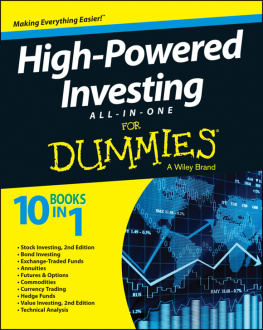
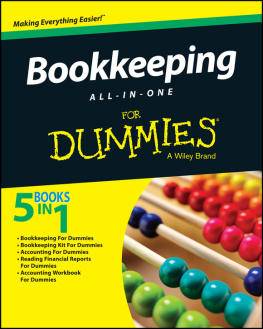




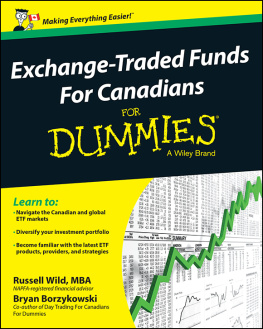
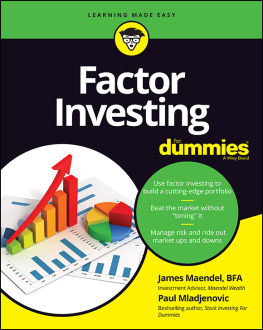
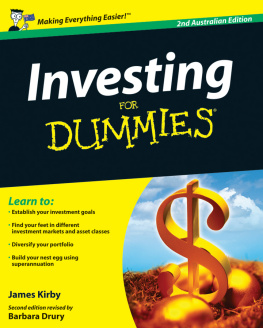
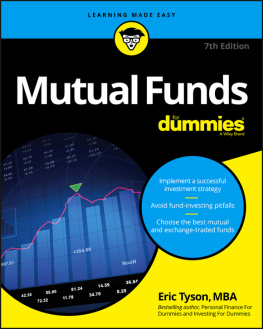
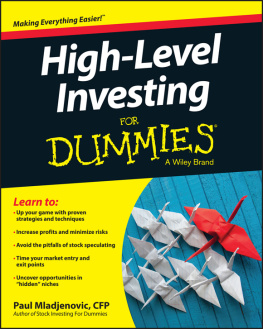
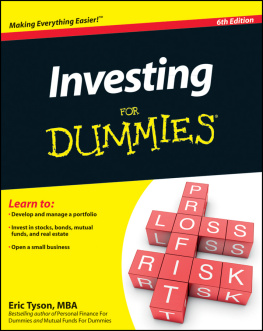

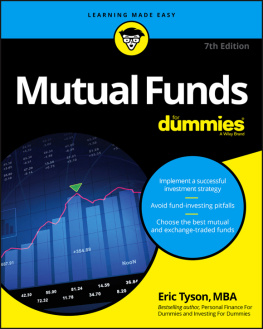


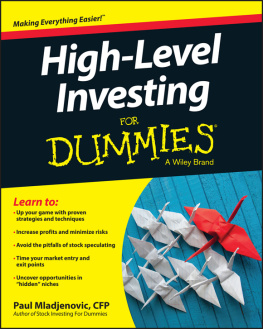
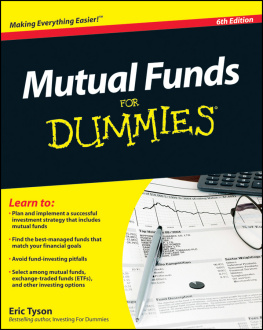

 Socially responsible investors expect the companies they invest in to act ethically. See the characteristics that responsible corporations possess in a free article at
Socially responsible investors expect the companies they invest in to act ethically. See the characteristics that responsible corporations possess in a free article at